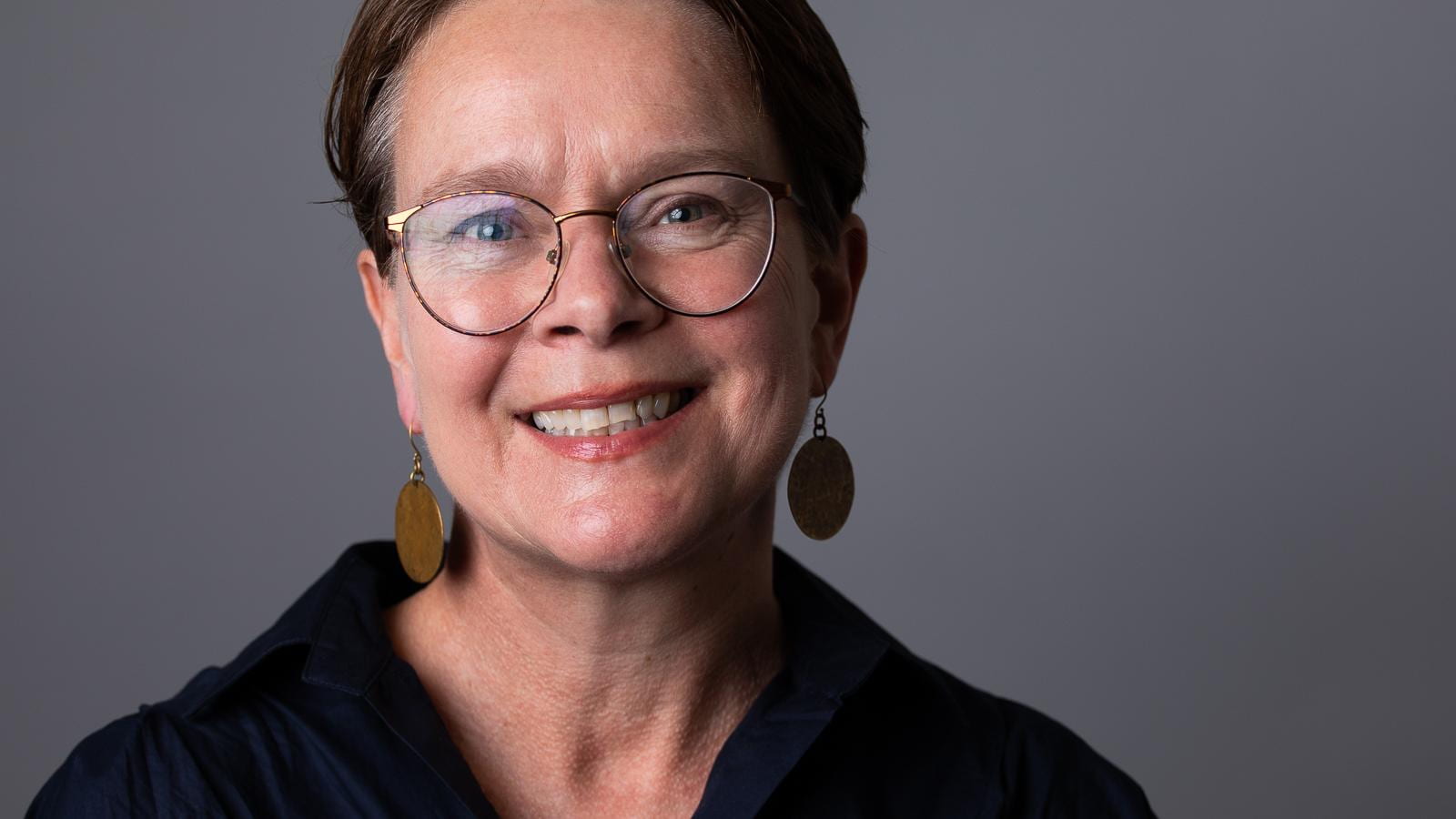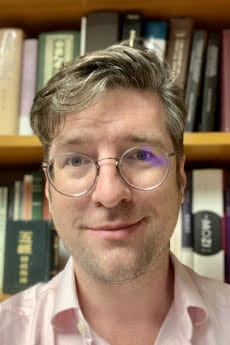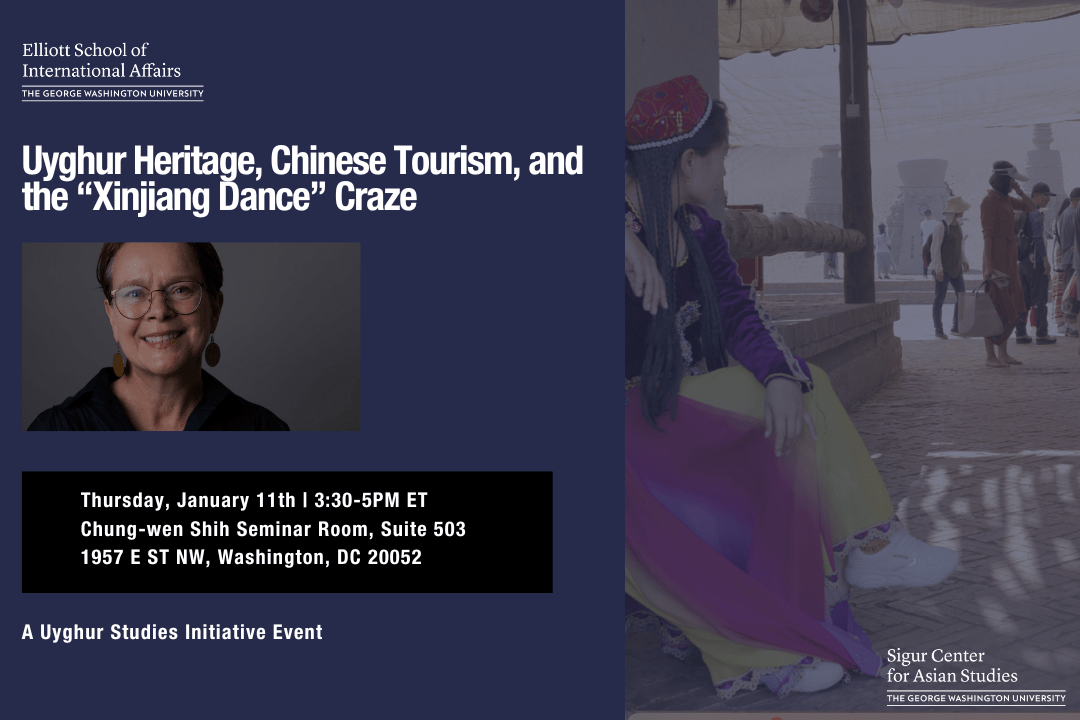Thursday, January 11, 2024
3:30 PM – 5:00 PM ET
Chung-wen Shih Conference Room, Suite 503
Elliott School of International Affairs
1957 E Street NW Washington, D.C. 20052
About the Speaker:

Rachel Harris is Professor of Ethnomusicology at SOAS, University of London. Her research focuses on musical life, religious and expressive culture among the Uyghurs, and heritage and tourism in China. Her latest book Soundscapes of Uyghur Islam (Indiana University Press 2020) won the 2022 BFE book prize. Recent projects include a British Academy Sustainable Development Project to revitalize Uyghur cultural heritage in Kazakhstan, and the European Research Council Advanced Grant, Maqām Beyond Nation.
About the Moderator:

Eric Schluessel is a social historian of China and Central Asia, and his work focuses on Xinjiang (East Turkestan) in the nineteenth and twentieth centuries. Land of Strangers, his first monograph, uses local archival and manuscript sources in Chinese and Chaghatay Turkic to explore the ramifications of a project undertaken in the last decades of the Qing empire to transform Xinjiang’s Turkic-speaking Muslims into Chinese-speaking Confucians.
Schluessel is currently pursuing two research projects: Saints and Sojourners explores the economic history of the Uyghur region from the 1750s through the 1950s as seen from below, through the records of merchants, farmers, and managers of pious endowments. It ties changes at the village level to shifts in the global economy in places as far away as Manchester and Tianjin. Exiled Gods delves into Han Chinese settler culture and religion to illuminate the history of a diasporic community of demobilized soldiers and their descendants that spanned the Qing empire.
Thanks to grants from the National Endowment for the Humanities and the American Council of Learned Societies, Schluessel is also completing a translation and critical edition of the Tārīkh-i Ḥamīdī of Mullah Mūsa Sayrāmī, which is an important Chaghatay-language chronicle of nineteenth-century Xinjiang.
Schluessel previously taught at the University of Montana in Missoula and spent the 2018–2019 academic year as a Mellon Fellow at the Institute for Advanced Study in Princeton, NJ.



